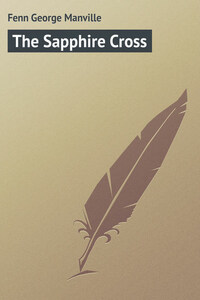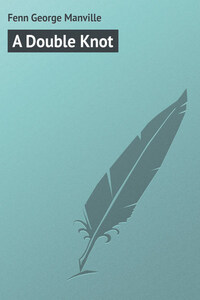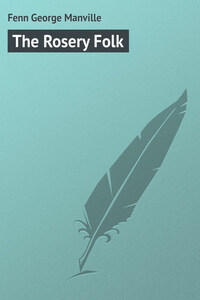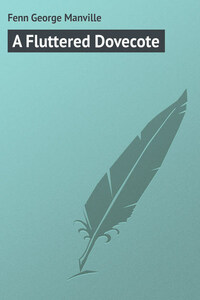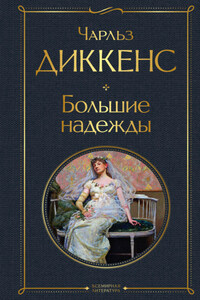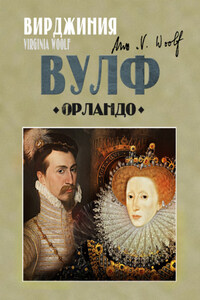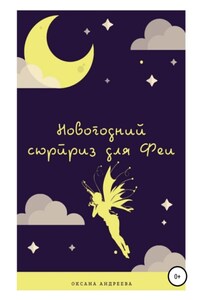“Oh, how sweet the pines smell, Marion! I declare it’s quite bliss to get down here in these wilds, with the free wind blowing the London smoke out of your back hair, and no one to criticise and make remarks. I won’t go to the sea-side any more: pier and band, and esplanade and promenade; in pink to-day and in blue to-morrow, and the next day in green; and then a bow here and a ‘de-do’ there; and ‘how’s mamma?’ and ‘nice day;’ and all the same sickening stuff over again. There! I won’t hear fault found with the Fen-land ever any more. I don’t wonder at that dear old Hereward the Wake loving it. Why, it’s beautiful! and I feel free – as free as the air itself; and could set off and run and jump and shout like a child?”
“Dangerous work, running and jumping here,” said a tall, pale girl, the speaker’s companion, as she picked her way from tuft to tuft of heath and rushes, now plucking a spray of white or creamy-pink moss, now some silky rush, and at last bending long over a cluster of forget-me-nots, peering up from the bright green water plants, like turquoise set in enamelled gold.
“What lovely forget-me-nots!” cried her blonde companion, hurrying to her side, the oozy ground bending beneath her weight, as she pressed forward. “True blue – true blue! I must have a bunch as well.”
“Poor Philip’s favourite flowers,” said the other, sadly. “I have the little dried bouquet at home now that he gave me – six years ago this spring, Ada. Forget-me-not!”
She stood, sad and thoughtful, with the flowers in her hand, the tears the while dropping slowly upon the little blue petals, that seemed like eyes peering up at her. They were standing together upon the edge of a wide stretch of uncultivated marsh, which commenced as soon as the grove of whispering pines through which they had come ceased to flourish; though here and there, just as they had been dragged forth from the boggy depths, lay, waiting for carriage, huge roots of pines, that had been growing, perhaps, two thousand years before, and now, probed for and dragged to the surface, proved to be sound – undecayed, and crystallised with the abundant turpentine, forming a fuel much sought after by the country people.
“Marion, darling,” whispered the fair girl, passing her arm round the other’s waist, and speaking in soft, deep tones – a perfect contrast to her gay accents of a few moments before – “try not to mourn now: it is hardly loyal, and it is of no avail. I too have wept for the dead, many and many a time.”
“Yes; we all weep for our passed away,” said Marion, sadly.
“Yes, true; I mourned, too, for poor Philip, Marion.”
“You, Ada?”
“Yes; why not? I feel no shame in owning that I loved him, too – warmly as ever you could, though I saw his preference and bore it in silence.”
“You, you – Ada?”
“Yes, dear, I. You think me light and frivolous, but may not that be merely on the surface? I wept long when I found that he loved and was engaged to you; but I hid my secret, for my only wish was to see him happy; and you cannot say that I ever failed in my friendship.”
“Never – never, dear,” said Marion, gazing with troubled eyes at her friend, but clinging to her the while; and then, making their way to the pine grove, they sat down amongst the soft shed needles to rest, dreamily pondering over the past, till, starting from her reverie, Ada Lee exclaimed lightly:
“There, this will not do. Poor Philip has gone to his soldier’s grave, honourably fighting for his country. May Heaven rest him! for he was a brave fellow; but life is not long enough for much time to be spent in weeping. There, Marion, darling, rouse your self; this is not a thing of yesterday. Come! we must get back. Think of the wooing and wedding, and be as merry and light-hearted as I am. Heigho! I wish, though, that some one would marry me, and bring me to live down here in these dear old solemn marshes. How nice for me to be always close to you, wouldn’t it? There’s a house across there amongst the trees that would do capitally. Who lives there?”
“No one, Ada,” said the other, sadly. “That is Merland Hall, where poor Philip should have dwelt.”
Ada started, and again her arm was pressed round her companion’s waist, when, almost in silence, they walked back to the parsonage, where Ada Lee was staying with her friend, having come down from London to fulfil the office of bridesmaid at Marion’s wedding.
But on reaching her bedroom Marion threw herself in a chair, letting the botanical specimens she had been gathering fall upon the carpet beside her, as she leaned her head upon her hand, and remained silent and thoughtful.
“Oh, come – come, darling; this will never do,” cried Ada. “Mrs Elstree said that I was to do all I could to cheer and enliven you, and here have I been making you worse with my ill-chosen chatter. Why, you ought to be as happy as the day is long: a fine, handsome husband, young as well as rich; a castle to live in, and he as devoted as possible. Why, I declare I’m almost in love with him myself. Look at the presents he has sent you. Why, one would think, to see that doleful face, that you did not like him!”
